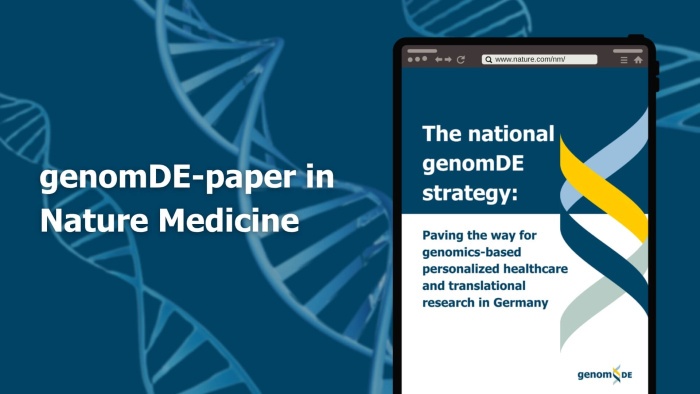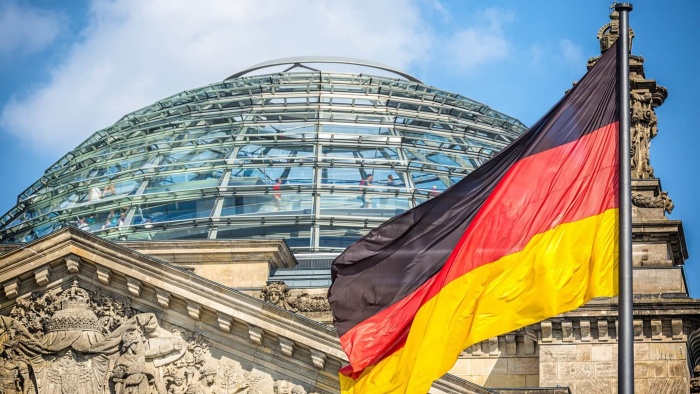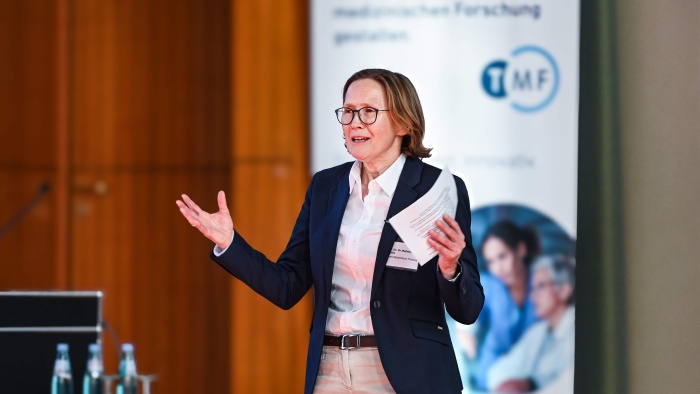11th National Biobanking Symposium: Biobanking in Challenging Times
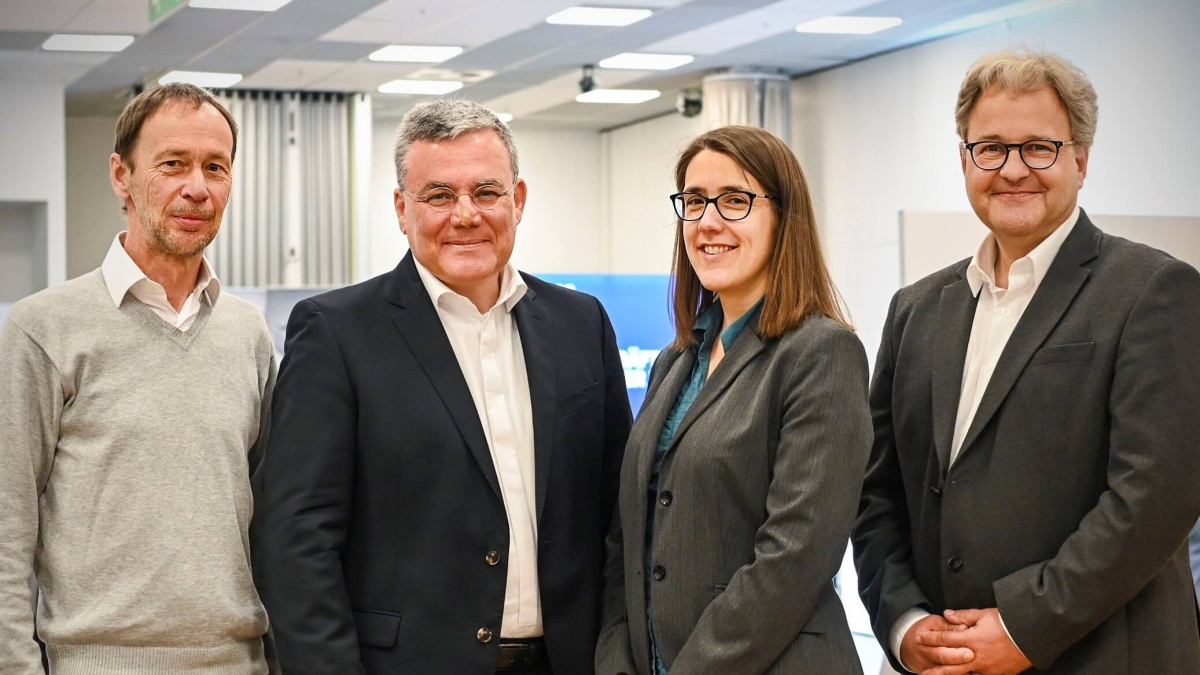
Prof. Dr. Michael Hummel (GBN director), PD Dr. Dr. Michael Kiehntopf (TMF board member), PD Dr. Sara Nußbeck (conference president), Sebastian Semler (TMF managing director) (from left to right). © TMF
The 11th National Biobanking Symposium will take place from May 25-26, 2023, with the motto "Biobanking in challenging times," bringing together 200 experts in Berlin. In her opening speech, conference president PD Dr. Sara Nußbeck from the Central Biobank of the University Medical Center Göttingen (UMG) addressed the current challenges and uncertainties facing biobanks regarding the ongoing crises. Overcoming these challenges requires innovative solutions and a sustainable strategy. "As biobanks, we have to address the question of how we can make our activities more efficient and resource-saving without compromising the quality of biobanking," said Nußbeck. "At the same time, it is important that we prepare ourselves and are ready for new technologies, artificial intelligence, and big data approaches." The Biobanking Symposium is the largest national industry meeting in biobanking. It is jointly organized by the Technology and Methods Platform for Networked Medical Research (TMF) and the German Biobank Node (GBN).
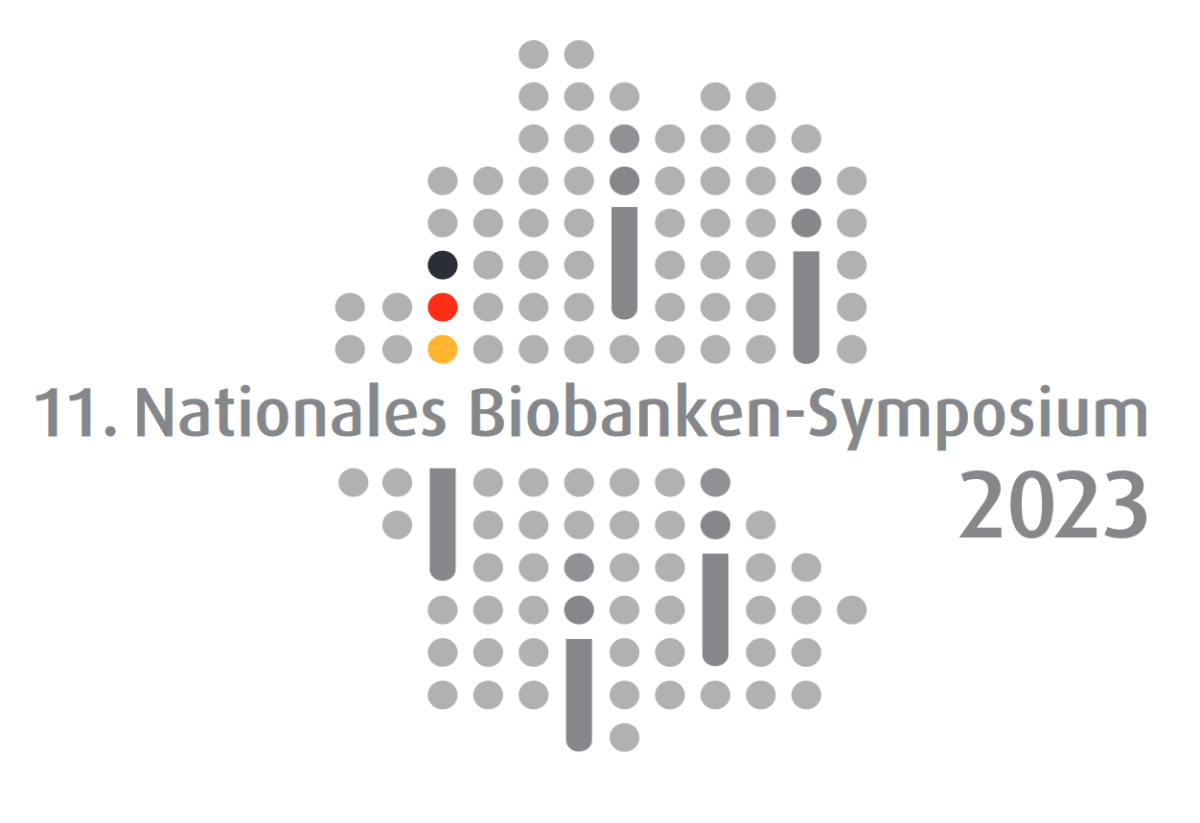
Rising energy prices, the threat of supply bottlenecks, the climate crisis, and the continuing impact of the COVID-19 pandemic pose new challenges for biobanks. The symposium offers participants the opportunity to discuss various solutions. "Thanks to their strong networking with each other and their commitment to standardization, biobanks can meet the challenges together and additionally promote the establishment of international partnerships," says Nußbeck. For example, it was possible to evacuate the sample stock of a biobank from Kharkiv in Ukraine to Austria, as Dr. Svetlana Gramatiuk, head of the Ukraine Association of Biobanks, reported at the symposium. German biobanks have also accommodated biosamples from Ukraine very unbureaucratically.
For More Sustainable Biobanking
The uncertain situation, the associated price increases, and supply bottlenecks are impairing the work of biobanks in Germany. Operating costs have risen significantly, especially when storing samples in -80°C ultra-low temperature freezers. A team from Environmental Medicine at the University of Augsburg took part in the "Freezer Challenge" of the US initiative "My Green Lab," not only to save costs but also to operate their laboratory more climate-friendly. With success - under 1,200 participating laboratories from all over the world, they won in the "Academic/Large Size Lab" category. "With the help of various measures, we were able to reduce our energy consumption significantly. For example, we now store certain samples that can withstand this at higher temperatures," says Dr. Claudia Hülpüsch, Head of the "Microbiome" department. "We also maintain our cooling units very thoroughly and regularly." GBN Director Prof. Dr. Michael Hummel adds: "It is also important to use the available storage capacity efficiently. This is one reason for using professional biobanks, as they usually have sample management systems that monitor this. Biobanks can also ensure that other research projects have access to existing samples and thus make the use of samples more sustainable."
Advancing Digitalization
A sustainable form of sample use is to be achieved in the future by combining biosamples and patient data from healthcare and making them jointly usable for research via a portal. In the joint project of the Medical Informatics Initiative (MII), ABIDE_MI, which has been running since 2021, a technical solution was developed that links data from the MII data integration centers with samples from biobanks of the German Biobank Alliance (GBA). Since the Research Data Portal for Health (FDPG) opening in May 2023, researchers have been able to submit feasibility requests for data and specimens. "ABIDE_MI has helped to advance the integration of processes and infrastructures between biobanks and the MII as a data infrastructure. This is an important step towards connecting biobanks to the planned health data infrastructures as part of the digitalization of health research," explains the TMF’s Managing Director Sebastian C. Semler. "This is particularly important when looking at the European Health Data Space." Prof. Dr. Jens Habermann, Director General of the European infrastructure BBMRI-ERIC, adds: "German biobanks are already highly visible on an international level via the German Biobank Node. ABIDE_MI now enables them to play a significant role in data-focused European research initiatives and the European Health Data Space."
ABIDE_MI has helped advance the integration of processes and infrastructures between biobanks and the MII as a data infrastructure.
A Look Into the Future: Biobanks and AI
Prof. Dr. Torsten Haferlach emphasized the importance of well-characterized samples that are linked to comprehensive genetic information in the biobanks. Modern laboratory medicine should be digitized and offer interfaces for linking with various devices and storage media. "In the future, comprehensively characterized biobanks in conjunction with algorithms and artificial intelligence will offer great potential for researching diseases and developing new drugs," says Haferlach. Complete digital networking of different platforms is crucial to enable the optimal use of biobanks.
Press Contact
Wiebke Lesch (TMF)
Phone: +49 30 2200 24731
Mobile: +49 177 2663257
E-mail: presse@tmf-ev.de
Twitter: @tmf_eV
Verena Huth (German Biobank Node)
Phone +49 30 450 536 354
E-mail: verena.huth@charite.de
Twitter: @bbmri_en
About the TMF
The TMF - Technology and Methods Platform for Networked Medical Research is Germany's umbrella organization for collaborative medical research. The TMF brings together researchers from different disciplines to work together to develop concepts, infrastructures, and methods for research. The Biobanks workgroup discusses legal, ethical, and technical framework conditions for biobanks. In particular, large consortium projects and lighthouse projects such as the current Medical Informatics Initiative are supported by the TMF in terms of content and organization through the sponsorship of accompanying structures. By pooling resources, the TMF makes an important contribution to efficient, cutting-edge medical research in Germany. More information can be found on the TMF website.
About the German Biobank Node (GBN)
Under the German Biobank Node’s (GBN) umbrella, academic biobanks at 37 locations and an IT development center have joined forces in the German Biobank Alliance (GBA). The GBA biobanks establish common quality standards and make their human biosamples and associated data available for medical research. As the German representative in the European biobank network BBMRI-ERIC, GBN promotes the harmonization and networking of biobanks in Europe. The Federal Ministry of Education and Research (BMBF) funds the work of GBN, which is supported by the German Cancer Research Center Heidelberg (DKFZ) in the area of IT as well as the BioMaterialBank Heidelberg (BMBH) and the Integrated Biobank Jena (IBBJ) in the area of quality management. More information can be found on the GBN website.
